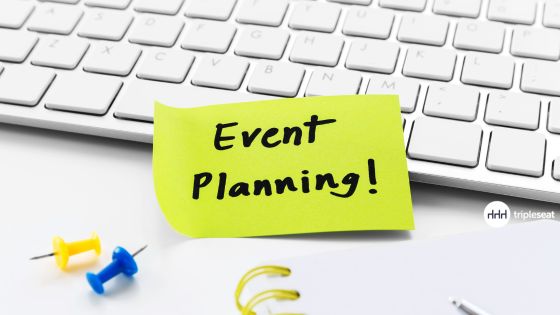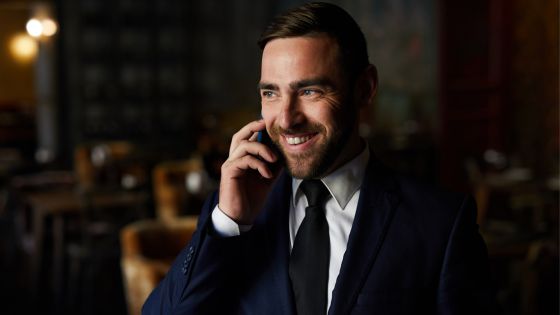Event Planning Questions to Ask Clients: Getting the Details Right

As an event planner or manager, asking the right event planning questions is crucial for understanding your client’s vision and executing a successful event. Whether you are in charge of events at a restaurant, hotel, or unique venue, thoroughly presenting and exploring the many event options and details ensures that you meet your client’s expectations. Getting the details right leads to a memorable and successful event.
We’ve put together a comprehensive list of the many questions to ask your clients about event planning and management. Before we get to that, though, keep in mind that with so many details that go into creating an event. Why not use technology, like Tripleseat, to make things efficient and easy?
Tripleseat streamlines your entire event management process, from initial inquiries to final payments. Our comprehensive event management platform helps you:
- Capture and track leads efficiently
- Organize schedules and spaces with integrated event calendars
- Manage event communications seamlessly
- Understand and leverage client information with CRM tools
- Streamline BEOs and documentation
- Coordinate complex logistics with ease
- Creative floorplanning tools
- Process payments quickly and securely
- and so much more….
With Tripleseat, you’ll have a powerful tool to handle every aspect of your events, boosting productivity and enhancing client satisfaction. Whether you’re planning intimate social gatherings or large-scale corporate productions, our software adapts to your needs, ensuring nothing falls through the cracks.
Essential Event Planning Questions to Cover with Your Clients
Event Basics
These questions help establish the fundamental framework of the event.
- How did you hear about us? It’s always great to know why a client has discovered and booked your restaurant, hotel, or unique venue for their event.
- What type of event are you planning? Events can range from corporate conferences to weddings, product launches to charity galas. Each type has unique requirements.
- What’s the primary purpose of this event? Understanding the goal (e.g., networking, celebrating, educating) shapes all other decisions.
- When do you want to hold the event? The date affects your venue’s availability and pricing. Consider seasonal factors and potential conflicts.
- What’s your ideal time frame for the event (start and end times)? This impacts staffing and potentially venue rental duration.
- Where would you like to hold the event? Location and space affects accessibility, atmosphere, and budget.
Guests
Understanding the guest list is crucial for tailoring the event experience.
- How many guests are you expecting? This affects the venue room, F&B quantities, and overall budget.
- Who is your target audience? Knowing the demographic helps in planning appropriate entertainment, menu, and atmosphere.
- Will there be any VIPs or special guests? VIPs may require special accommodations.
- Are children welcome? This impacts room choice, menu planning, and potentially entertainment options.
- Do you need to accommodate any accessibility requirements? Ensuring all guests can fully participate may require specific venue features or services.
Budget
Clear budget discussions are essential for managing expectations and prioritizing expenses.
- What’s your overall budget for the event? Or what is your budget per person? This sets the scope for all other planning decisions.
- Are there specific areas where you want to allocate more budget? Understanding priorities helps in allocating funds effectively.
- Do you have a contingency budget? A buffer (typically 10-20%) helps manage unexpected costs.
- Are there any budget constraints we should be aware of? Knowing limitations upfront prevents issues later in the planning process.

Theme and Atmosphere
These questions help capture the client’s vision for the event’s look and feel and how you set the scene.
- Do you have a specific theme in mind? Themes can range from broad concepts to specific eras or cultures.
- What atmosphere or mood are you aiming for? This influences decor, lighting, music, and even menu choices.
- Are there any colors or design elements you want to incorporate? This informs decor choices and can tie into branding for corporate events.
- Do you have any visual references or inspiration? Images or examples help ensure you and client are on the same page.
F&B Details
Food and beverage are often a significant part of the event experience and budget.
- What type of F&B service do you prefer (sit-down, buffet, cocktail style)? This affects timing, staffing needs, and guest interaction.
- Are there any dietary restrictions we need to consider? Common restrictions include vegetarian, vegan, gluten-free, and religious dietary laws.
- Do you want to include alcohol? If so, open bar or cash bar? Alcohol can significantly impact budget and may require special licensing.
- Are there any specific cuisines or dishes you’d like to feature? This could tie into the event theme or highlight local specialties.
Entertainment and Activities
These elements often form the core of the guest experience.
- What kind of entertainment are you considering? Options range from background music to interactive performances.
- Do you need a DJ, live band, or both? This affects budget, space requirements, and the overall vibe of the event.
- Are there any specific activities you want to include? Activities can range from team-building exercises to dance lessons, depending on the event type.
- Do you need any audiovisual equipment? This could include microphones, projectors, screens, or more complex setups for presentations or performances.
Logistics, Logistics, Logistics
These practical considerations ensure smooth event operations.
- Do you need transportation arranged for guests? This could range from airport shuttles to valet parking services.
- Will you require parking facilities? This is especially important for urban venues or large events.
- Do you need accommodation arranged for out-of-town guests? This may involve negotiating hotel room blocks for better rates.
- Are there any security requirements? This could range from bag checks to hired security personnel, depending on the event type and guest list.
Decor and Rentals
These elements bring the event theme and atmosphere to life.
- What kind of decorations do you envision? This could range from simple centerpieces to elaborate stage designs.
- Do you need any specific rental items (chairs, tables, linens, etc.)? Some venues provide these items, while others require separate rentals.
- Are there any special lighting requirements? Lighting can dramatically affect the mood and functionality of the space.
Timeline and Schedule
A well-planned schedule ensures the event runs smoothly.
- Do you have a rough idea of the event schedule? This will help coordinate vendors, activities, and guest flow.
- Are there any specific moments or activities that need to be timed precisely? This could include speeches, award presentations, or key entertainment segments.

Staff and Vendors
The right team is crucial for executing the event vision.
- Do you have any preferred vendors you’d like to work with? Clients may have existing relationships or preferences for certain suppliers.
- How many event staff members do you think you’ll need? This depends on event size, type, and level of service required.
- Are there any specific roles you need filled? This could include hosts, servers, or specialized roles.
Photography and Videography
These services capture memories and can be used for future marketing.
- Do you want professional photography or videography? This is standard for most large events but may not be necessary for smaller gatherings.
- Are there any specific shots or moments you want captured? This ensures important elements aren’t missed in the hustle of the event.
Past Experiences
Learning from previous events can improve future ones.
- Have you organized similar events before? This provides insight into the client’s experience level and expectations.
- What worked well in past events? This helps identify elements to replicate or build upon.
- Were there any issues in past events you’d like to avoid? This helps prevent repeating past mistakes.
Communication
Clear communication is key to a successful planning process.
- How often would you like updates on the planning process? This could range from weekly check-ins to major milestone updates.
- What’s your preferred method of communication? Options might include email, phone calls, or in-person meetings.
- Who are the key decision-makers we should be in contact with? Identifying these individuals upfront streamlines the approval process.
Ready to Make Events Easy? Check Out Tripleseat
With hospitality software, there is no need to have a checklist of questions to ask! Use a modern event management software to have everything at your fingertips and to make information sharing easy with your clients.
Schedule a Tripleseat demo to take a closer look at our event management features.
